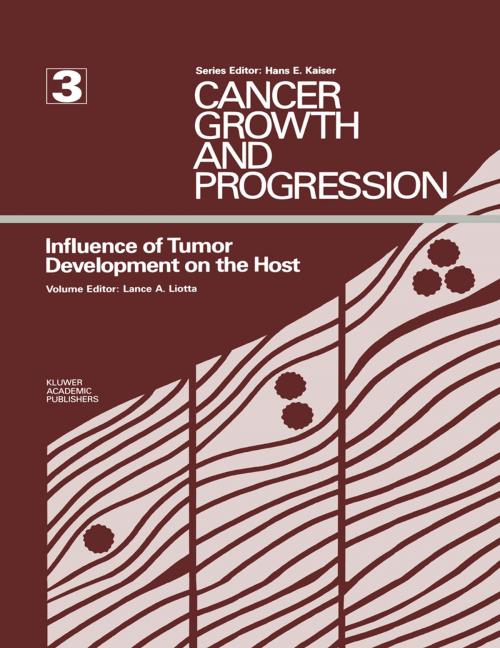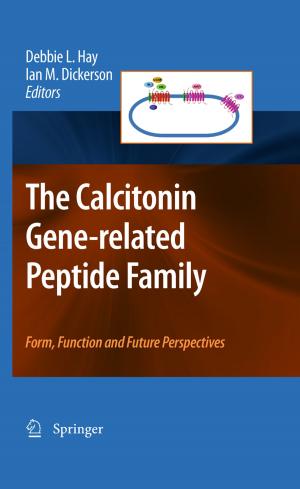Influence of Tumor Development on the Host
Nonfiction, Health & Well Being, Medical, Specialties, Pathology, Oncology| Author: | ISBN: | 9789400925281 | |
| Publisher: | Springer Netherlands | Publication: | December 6, 2012 |
| Imprint: | Springer | Language: | English |
| Author: | |
| ISBN: | 9789400925281 |
| Publisher: | Springer Netherlands |
| Publication: | December 6, 2012 |
| Imprint: | Springer |
| Language: | English |
Recent experimental evidence has made it increasingly clear In particular, this volume reviews the discrete steps involved that the properties of invasive, malignant cells during tumor in metastatic invasion: the interaction of invasive tumor cells development substantially impact on the host. This is under with extracellular matrices, the basement membrane, attach scored by a variety of biochemical properties of tumor cells ment to extracellular matrices, local proteolytic degradation during their differentiation and metastatic dissemination. of matrices, and the locomotion of invasive tumor cells These properties can be analyzed at different stages of tumor through such areas of localized degradation. The critical growth and progression and this volume explores the role of the cell surface in secondary tumor formation is characteristics of primary tumors as well as the shared reviewed as are important advances in the molecular biology characteristics of both primary and secondary tumors. of metastasis initiation and maintenance. Recent advances The primary tumor comes into existence following in the role of DNA methylation in the generation of tumor preneoplastic biochemical and cellular events that ultimate cell heterogeneity and tumor progression are also critically ly result in malignant transformation. Various aspects of summarized. Chapters in this volume also review molecular metabolism, predetermined by nutritional status, often play aspects of metastatic progression, and the use of the tech a basic role. Obesity, for example, is cancer-promoting. Cell nologies of DNA transfection and somatic cell fusion in the surface carbohydrates, cytoskeletal proteins, glycoproteins, exploration of molecular aspects of metastatic progression.
Recent experimental evidence has made it increasingly clear In particular, this volume reviews the discrete steps involved that the properties of invasive, malignant cells during tumor in metastatic invasion: the interaction of invasive tumor cells development substantially impact on the host. This is under with extracellular matrices, the basement membrane, attach scored by a variety of biochemical properties of tumor cells ment to extracellular matrices, local proteolytic degradation during their differentiation and metastatic dissemination. of matrices, and the locomotion of invasive tumor cells These properties can be analyzed at different stages of tumor through such areas of localized degradation. The critical growth and progression and this volume explores the role of the cell surface in secondary tumor formation is characteristics of primary tumors as well as the shared reviewed as are important advances in the molecular biology characteristics of both primary and secondary tumors. of metastasis initiation and maintenance. Recent advances The primary tumor comes into existence following in the role of DNA methylation in the generation of tumor preneoplastic biochemical and cellular events that ultimate cell heterogeneity and tumor progression are also critically ly result in malignant transformation. Various aspects of summarized. Chapters in this volume also review molecular metabolism, predetermined by nutritional status, often play aspects of metastatic progression, and the use of the tech a basic role. Obesity, for example, is cancer-promoting. Cell nologies of DNA transfection and somatic cell fusion in the surface carbohydrates, cytoskeletal proteins, glycoproteins, exploration of molecular aspects of metastatic progression.















